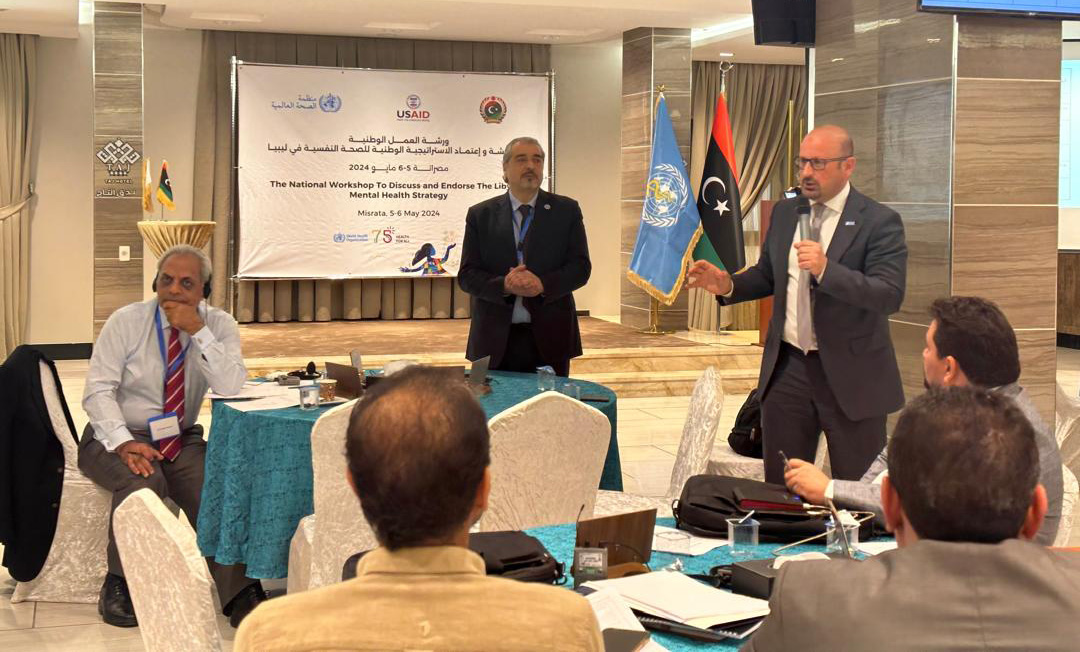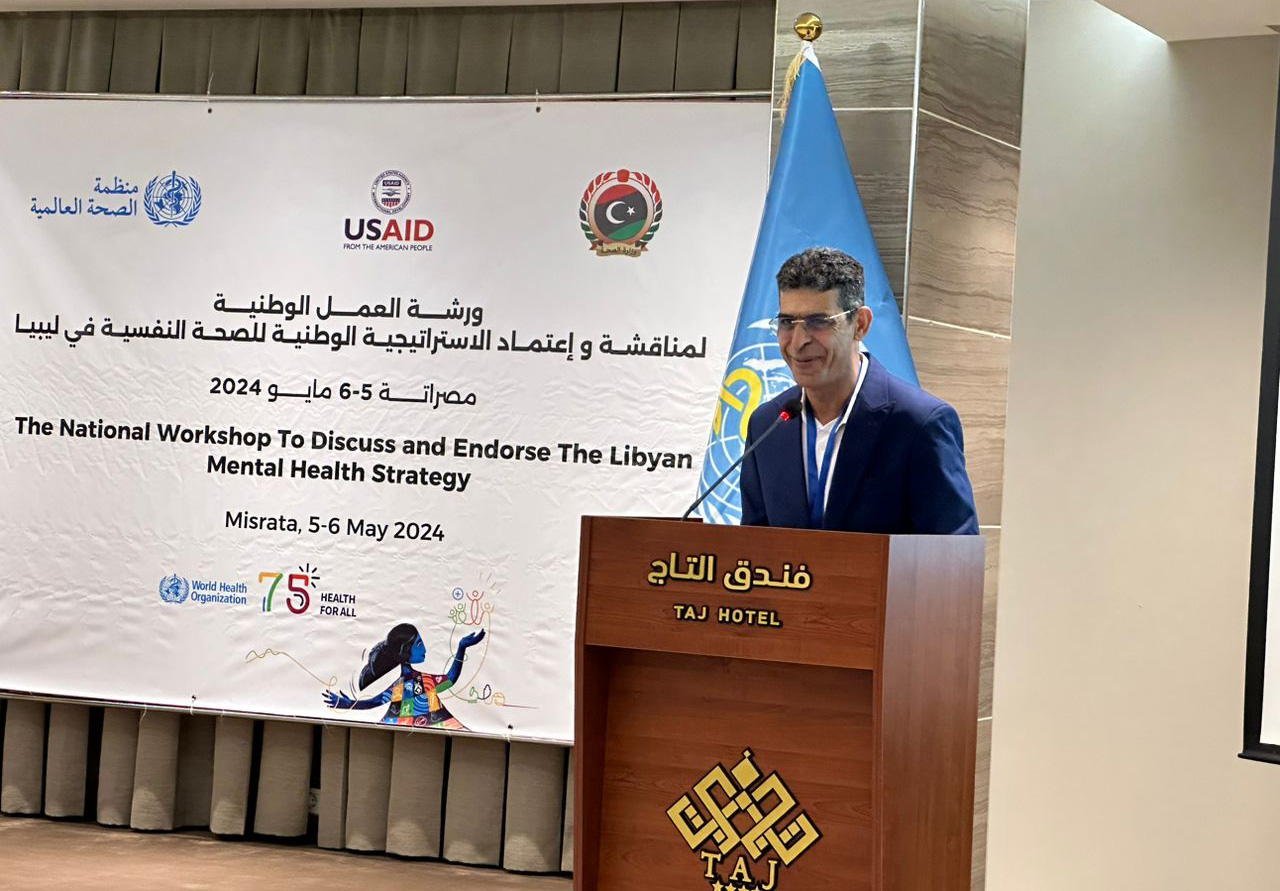 Dr Ahmed Zouiten, WHO Representative to Libya, congratulates the workshop participants on their achievements in prioritizing mental health on Libya’s health agenda. Photo credit: WHO/WHO Libya
Dr Ahmed Zouiten, WHO Representative to Libya, congratulates the workshop participants on their achievements in prioritizing mental health on Libya’s health agenda. Photo credit: WHO/WHO Libya
7 May 2024, Misrata, Libya – Libya’s National Mental Health Strategy 2024–2030 has been endorsed following a 2-day workshop led by WHO Libya and the Ministry of Health.
The agreed strategy aims to address critical mental health challenges in Libya, building on the identified needs to improve mental well-being across the country, taking into consideration the Libyan context.
During the WHO-supported national workshop, mental health specialists from across Libya and their WHO counterparts discussed key objectives and initiatives outlined in the strategy. These include setting up a national committee for mental health; providing trained workforce in all disciplines; involving various sectors and stakeholders; and striving to strengthen prevention, early detection, treatment and close follow-up.
The National Mental Health Strategy seeks to establish a comprehensive, intersectoral, integrated and responsive system to ensure access to and use of quality mental health and psychosocial support services across Libya. Its mission is to promote mental health in Libya by providing comprehensive and quality mental health services in a healthy and sustainable environment, in line with national legislation, policies and programmes, and regional and global norms and standards.
The strategy sets out 5 general strategic objectives, which are to:
establish effective leadership and governance for mental health;
improve mental health services at all levels, including through the integration of a community-based model of services;
develop and enhance human resources for mental health;
strengthen the prevention and early detection programmes for mental disorders and promote mental health;
develop an information system and implement a comprehensive statistical database to support sustainability and quality of care, and promote scientific research and publishing on mental health.
“The finalization and endorsement of the National Mental Health Strategy marks a crucial step towards prioritizing mental health in Libya’s health agenda,” said Dr Ahmed Zouiten, WHO Representative and Head of Mission in Libya. “This strategy underscores our commitment to build a resilient and healthy society where mental well-being is recognized as a universal human right.”
 Dr Saeduldeen Abdul Wakil, Libya’s Deputy Minister of Health, highlights the great collaboration between national experts and their WHO counterparts to endorse the National Mental Health Strategy. Photo credit: WHO/WHO Libya
Dr Saeduldeen Abdul Wakil, Libya’s Deputy Minister of Health, highlights the great collaboration between national experts and their WHO counterparts to endorse the National Mental Health Strategy. Photo credit: WHO/WHO Libya
Dr Saeduldeen Abdul Wakil, Libya’s Deputy Minister of Health, highlighted the great collaboration between national experts and their WHO counterparts and appreciated the technical expertise provided by WHO to finalize the strategy. Dr Abdul Wakil also emphasized that the strategy will enable the Ministry of Health to build capacities and reduce gaps in mental health services across the country.
WHO remains committed to supporting the development and implementation of evidence-based policies and programmes to improve public health outcomes in Libya. It does so by providing technical assistance, capacity-building and advocacy to enhance health services provision for all people in Libya.
The workshop was made possible thanks to financial support from the United States Agency for International Development.


